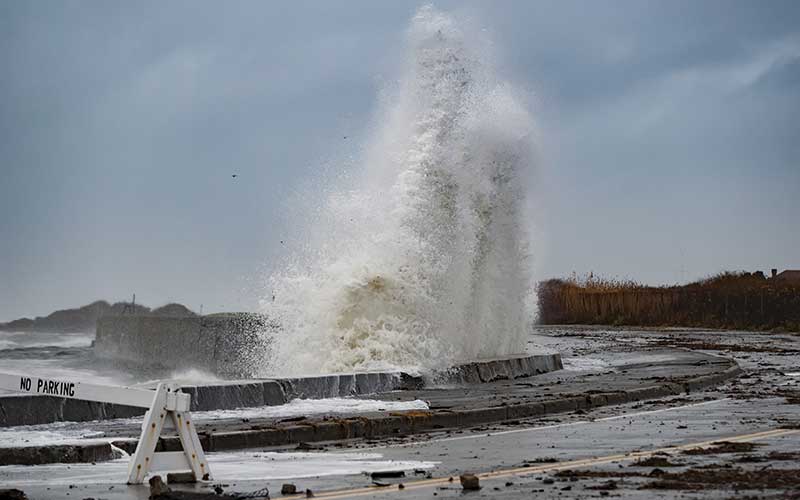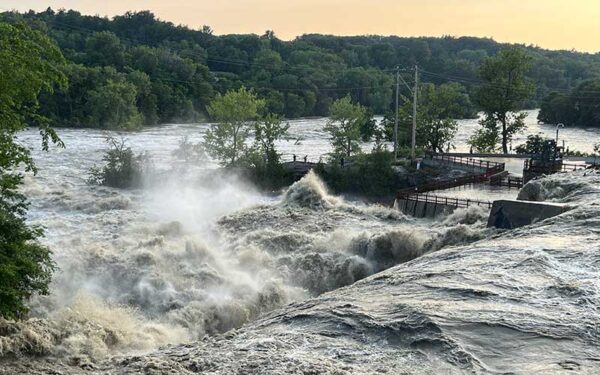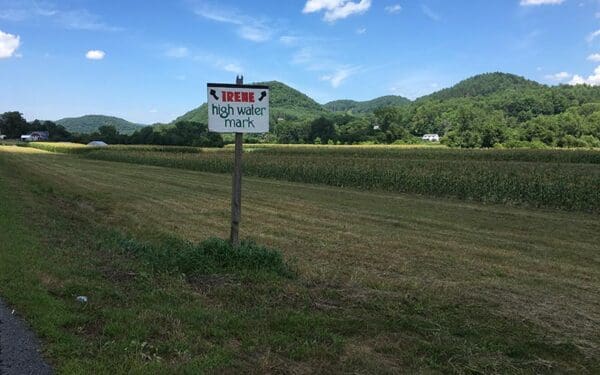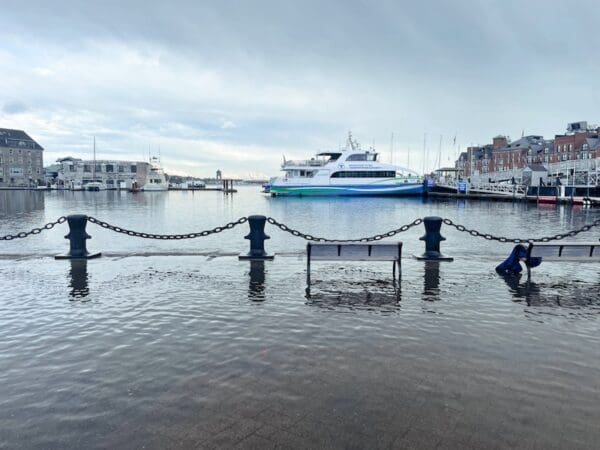
A new bill under consideration by the Massachusetts Legislature will help communities brace for climate impacts already in motion and those still to come.
Tackling the root causes of climate change by cleaning up our energy supply and making our homes, businesses, and cars cleaner and greener is critical in averting the worst impacts our changing climate will bring. But it’s not enough. We need to brace for the climate impacts already in motion by making our communities across New England more resilient – able to withstand and bounce back from extreme storms, greater precipitation, and rising seas.
The reality is we are already seeing the impacts of our changing climate manifest in more extreme rain and snow storms, higher average temperatures, and more flooding from high and king tides. These impacts threaten our public health, safety, and economy.
But we’re not powerless in the face of such impacts. By preparing for climate impacts today, we will ensure our communities will thrive long into the future. Massachusetts has already taken strides to prepare for these impacts, but there’s more the state can and must do before our communities are fully able to withstand future conditions.
Adapting to a New Climate Reality
Last fall, Governer Baker took a huge step forward in preparing for climate impacts when he signed Executive Order No. 569. This landmark order requires the state, among other things, to publish a Climate Adaptation Plan, establish a framework for each Executive agency to assess climate vulnerabilities, and provide technical assistance to cities and towns to complete their own vulnerability assessments and identify adaptation strategies.
Now, the state legislature is taking action with the Climate Adaptation Management Plan (CAMP) bill, which can help Massachusetts achieve its goal of safe, healthy, climate-resilient communities. While the CAMP Bill (S.472) and the executive order share many of the same objectives, the bill takes a more comprehensive and detailed approach.
For example, the executive order is limited to integrating agency efforts, but it does not address the need for action in the private sector. The CAMP bill would take the executive order a step further, providing the framework, guidance, and funding necessary for both the public and private sectors to work together to move the needle forward on climate adaptation in Massachusetts.
Bill Would Make Adaptation Goals the Law
Some of the key requirements of the CAMP bill (S.472) include:
- Compiling data on existing and projected sea level rise using best available in order to assess the risks to and create plans to help vulnerable communities.
- Producing a report documenting the preparedness and vulnerabilities in the Commonwealth’s emergency response, energy, transportation, communications, health, and other systems.
- Establishing an interagency advisory committee supported by staff to carry out the plan.
- Setting up a grant program to provide financial assistance to regional planning agencies for the development and implementation of CAMP, including vulnerability assessment and adaptation strategy development.
What CAMP Means to Your Community & How You Can Help
Ultimately, the CAMP bill will help ensure that, no matter where you live in Massachusetts, your community can have access to the tools and resources it needs to prepare for the impacts climate change will bring. Warmer temperatures and river and coastal flooding are already more common across New England. We may not be able to control the weather, but we do have the power to ensure that our communities are safe, healthy, and thriving in the face of the conditions to come.
That’s why we need your help to make sure that this bill is enacted into law. Call or email your senator today (click here to check your senate district). Tell them that you support climate action and to vote yes on S.472 (An Act providing for the establishment of a comprehensive adaptation management plan in response to climate change).
You can also attend a public hearing on CAMP and several other bills on Tuesday, May 16. The Joint Committee on Environment, Natural Resources, and Agriculture will meet at the State House in Boston at 1:00PM in Hearing Room B-1. When legislators see members of the public turn out to support a particular bill, it sends a strong message.




